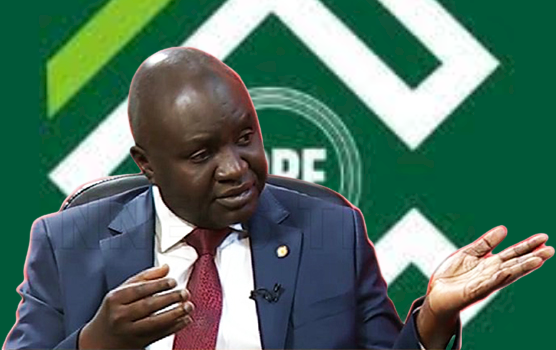Published
1 year agoon

The Centre for the Promotion of Private Enterprise (CPPE) has cautioned against the tendency to mistake the recent unification of naira exchange rates across various windows for devaluation of the local currency by the government.
In a statement signed by its Chief Executive Officer, Muda Yusuf, the CPPE clarified that rate unification is not a devaluation policy, but a pricing mechanism that reflects the demand and supply fundamentals in the foreign exchange market.
“It is a framework which allows for flexible rate adjustments as and when necessary. It is a model that is predictable, equitable, transparent and sustainable.
“It is a policy regime that would reduce uncertainty and inspire the confidence of investors. It would minimize discretion and arbitrage in the foreign exchange allocation mechanism,” it said.
According to the Centre, rate unification does not imply that rates will be exactly the same in all segments of the market.
The objective however, it said, is to ensure that the differentials are very minimal, possibly between 5-10%.
BUSINESS METRICS observes that at the close of last trading session on Tuesday before the Central Bank of Nigeria (CBN) officially announced the unification on Wednesday, naira traded at N471 and N755 in the official and parallel market respectively.
This represented differential of N285 equivalent to 60% difference between the two rates, a factor that has allowed arbitrage to thrive over the years.
Huge Benefits of Unification
While the CPPE described the exchange rate unification by the new administration of President Bola Tinubu as a bold step, it highlighted many economic benefits to be witnessed as ripples of the policy.
“The liberalization of the foreign exchange market would unlock the huge potentials for investment, jobs and capital flows.
“A unified exchange rate regime enhances liquidity in the foreign exchange market; it reduces uncertainty in the foreign exchange market and therefore enhances the confidence of investors; it is more transparent as mechanism for forex allocation; and it minimizes discretion in the allocation of forex and reduces corruption vulnerabilities.
Other benefits, according to the centre are that it reduces opportunities for round tripping and other sharp practices; it would increase disclosures with respect to export proceeds and compliance with non-oil export declarations, especially the non-oil export documentation (NXP).
The Centre said: “The unification would boost government revenue by a minimum of N4 trillion through additional remittance of exchange rate surplus to the federation account by the CBN.
“The use of naira cards for limited international transactions would be restored in the short to medium term. It would facilitate the mopping up of naira liquidity in the economy in the short to medium term. This would impact positively on inflation outlook.
“It would deepen the autonomous foreign exchange market through the liberalization of inflows from Export Proceeds, Diaspora Remittances, Multinational oil companies, diplomatic missions etc.”
What Comes Next
In terms of what lies ahead, the CPPE noted that in the short term, the country would witness a depreciation of the currency in the official window because of the huge demand backlog.
But as the market conditions normalizes and moves towards equilibrium, the rate would moderate, it stated.
“We also expect the new policy regime to boost inflows and strengthen the supply side amidst elevated investors’ confidence.
“The component of forex demand driven by arbitrage, rent seekers, speculators and other economic parasites would also fizzle out, thus restoring stability to the forex market,” the statement read.
Meanwhile, the Centre urged the apex bank to position itself for periodic intervention in the forex market, as and when necessary, to stabilize the exchange rate and prevent volatility.
“This should happen not by fixing rate, but by boosting supply to the extent that the reserves can support,” it said.














